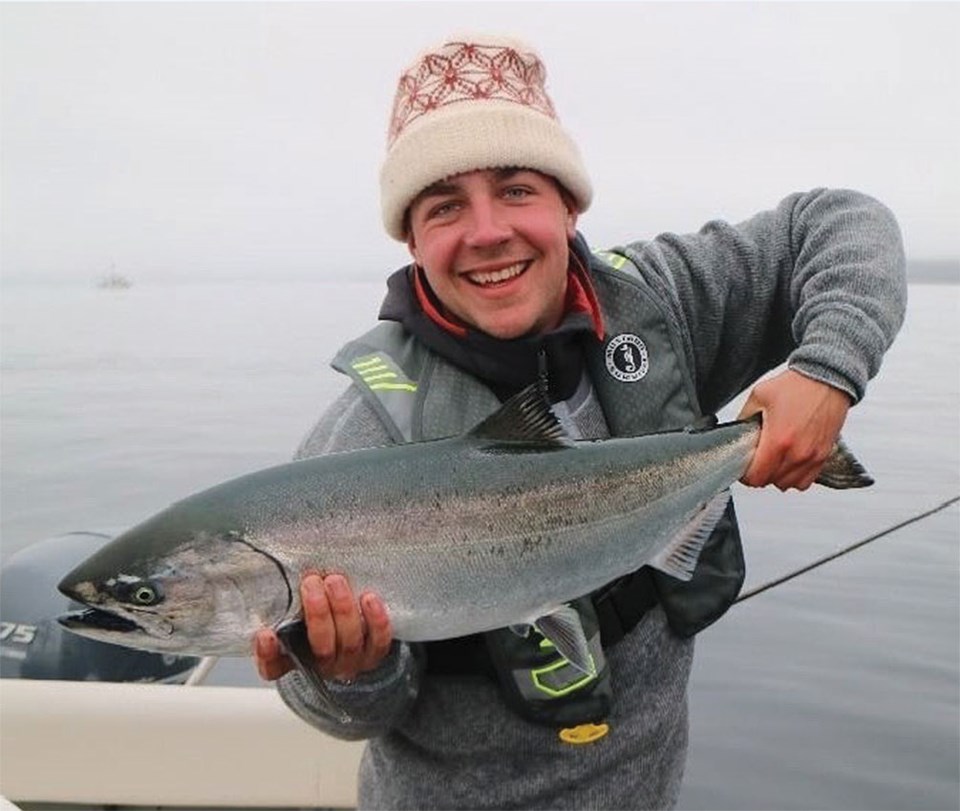The avoidable loss of life will continue unless Transport Canada finally has the will to act.
That was the message from the family of victims of a tragic tugboat sinking two years ago, which prompted a Transportation Safety Board (TSB) investigation and recommendations released in a report on Wednesday morning.
The MV Ingenika sank in stormy waters south of Kitimat while towing a large barge on Feb. 11, 2021.
Crew member Charley Cragg, 25 from Tsawwassen and captain Troy Pearson, 58, were killed, while a third crew member survived.
The TSB issued several recommendations aimed at enhancing the safety of smaller tugs including, among other things, expanding a surveillance program to include regular inspections of tugs of 15 gross tonnage (GT) or less to verify that the vessels are complying with regulatory requirements.
Also recommended is a requirement for authorized representatives of tugs of 15 GT or less to assess the risks present in their operations, including the suitability of their tugs for the specific towing operations they are undertaking.
Recommendations were also made for the Pacific Pilotage Authority, which is mandated to establish, operate, maintain and administer safe and efficient pilotage services in B.C.
The TSB noted that, since 2015, it has investigated six occurrences involving tugs of 15 GT or less operating on the west coast that have raised concerns around the adequacy of regulatory surveillance, a systemic safety issue that has been on the TSB Watchlist since 2010.
At a news conference in Vancouver, Kathy Fox, chair of the TSB, said some progress has been made, but it’s been slow, which is why the safety issues continue to be on their Watchlist.
When it comes to tug and barge operations on the west coast, a TSB concern about the lack of regulatory oversight had already been issued to Transport Canada in 2016 following an accident.
Demands for Transport Canada to act immediately
At a separate news conference in reaction to the report, Jason Woods, president of the International Longshore and Warehouse Union Local 400 Marine Section, said basic due diligence could have prevented the Ingenika tragedy.
“Would you try to send someone to drive down your streets without a driver’s licence? Would you send a commercial pilot to fly you and your loved ones to where you need to go without a certificate? This is the kind of industry that we have. No scrutiny, very little assistance from government. Transport Canada needs to do their job and inspect all commercial vessels,” he said.
“The minister (Omar Alghabra) needs to be brave. We can’t wait years…we need this change now. The minister can order it today. Two years later, we see a voluntary compliance program where 88 vessels in Canada have registered out of 1,300. Is that an effective program to make mariners safer here in British Columbia and across Canada?”
Charley's mother Genevieve Cragg said it’s up to the minister to fulfill his promise to make the marine industry safer, adding her son and Pearson paid the highest price to prompt change from finally happening.
“These recommendations announced by the board are critical and can’t be delayed. It’s been two years since we lost Charley and Troy, and not one actionable item has been implemented. Any response from the minister on these recommendations, which includes words like ‘voluntary’, ‘proposed’ or ‘continue to review’ will not save lives and prevent injury or death,” she said.
Noting the Ingenika had never been inspected in its 50 years of service, she added the accident was “one hundred per cent predictable and one hundred per cent preventable.”
Noting her husband Troy’s 24-year-old life suit had not been maintained or replaced, Judy Carlick-Pearson described the information they had gathered on the circumstances of the tragedy as “unbearable” and that they will continue to fight for marine workers who risk their lives.
Federal NDP Transportation Critic MP Taylor Bachrach said it’s infuriating how a company did not protect its workers and that the government has known about the safety deficiencies for years, but not acted.
“The measures that they have put in place have not been effective. They have not been strong enough. Voluntary measures are not enough to protect workers and we need to do better…we demand that you implement all of these recommendations immediately, that you increase the capacity of Transport Canada and you put proper fines in place, so the companies that flout the regulations are held accountable,” said Bachrach.
Earlier this year, charges were laid against Wainwright Marine Services and Bates Properties Ltd. president James Geoffrey Bates, whose company includes Wainwright Marine.
The eight counts allege violations of occupational health and safety regulations under the Workers Compensation Act.
Alghabra issued a statement in response Wednesday that Transport Canada will thoroughly review the investigation report and its recommendations, and he will provide a formal response to the Transportation Safety Board of Canada within 90 days.

